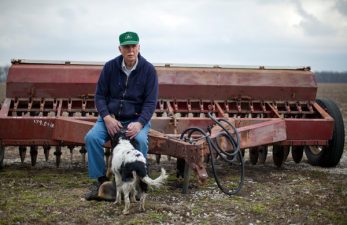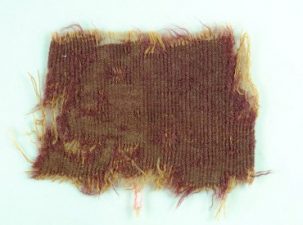 Live export controversy hits Middle East with full force: Australia may be merciful when raising its cattle at home. That all changes once they head to the Middle East market.
Live export controversy hits Middle East with full force: Australia may be merciful when raising its cattle at home. That all changes once they head to the Middle East market.
Animals and animal rights are not top on any agenda in the Middle East, but in 2012, a number of incidents brought the controversial live export trade to the forefront of environmental and animal treatment in the region. First with Egypt, then with Bahrain and as a result, Pakistan. The deaths of tens of thousands of cows being transported from both Brazil and Australia to the region have once again put the controversial live export industry in the spotlight. 2012 was not a good year for animals in the region. Read on.
Earlier this year, some 30,000 cows died on a ship destined for Egypt after the Egyptian government refused to allow the ship to dock at a Red Sea port. They were slaughtered as a “precaution,” the ministry said.
Animals Australia, the leading organization reporting on the controversial live export trade to the Middle East and Southeast Asia, said the incident was among the worst the industry had witnessed in years.
Animals Australia’s Campaign Director, Lyn White, said in a statement that the ship was anchored at sea after being refused port in a number of countries in the region, including Egypt, where the cattle were supposed to be offloaded.
It’s understood that ventilation problems on the converted livestock vessel, the MV Gracia Del Mar, had caused the deaths of more than half of the animals on board since the ship left South America for Egypt a few weeks ago.
The ship was anchored in the Red Sea for weeks and saw more animals perish as a result.
“This is nothing short of an animal welfare disaster. If remaining cattle are not offloaded more of these animals will suffer appalling deaths at sea. We are appealing to authorities in Egypt to offload the remaining cattle at al-Sohkna, as was originally intended.
“This disaster is just another example of the inherent risks of transporting animals by sea. It was only nine years ago that 5,000 Australian sheep perished on board the MV Cormo Express after country after country refused to allow it to berth.
“And this isn’t the first time that mechanical issues have caused mass deaths on live export ships. We only need to look to the breakdown of the Al Messilah in Adelaide last year. Had that vessel broken down on the open ocean it would have caused a similar welfare catastrophe — as thousands of animals would have died.
“Australia also exports cattle to Al Sohkna Livestock company in Egypt. Whilst we have an MoU with Egypt which should ensure the offloading of our animals, it has never been put to the test. The Egyptians thus far have flatly refused to allow the MV Gracia Del Mar to dock despite the mass suffering of the animals on board.
“If they continue to refuse to allow the surviving animals to be unloaded it would provide little confidence that the non-binding agreement with Australia would be honoured if a similar incident were to occur on an Australian livestock ship.
“It should not matter if these cattle aren’t Australian and if Brazil doesn’t have a similar piece of paper, they should not be abandoned to suffer and die at sea. We are appealing to Egyptian authorities to offload these cattle as a matter of urgency.”
Bahrain helped to bring another tragedy to the forefront of international animal-related media after they refused to allow a ship carrying some 20,000 sheep to dock on its shores, forcing the vessel to Pakistan. The sheep fared even worse upon arrival in Pakistan.
Pakistan tried to bury sheep alive
Four Corners revealed that the sheep had survived the Pakistani government’s attempts to bury the animals alive.
“His fleece matted with blood and dirt — a reminder of the brutal mass slaughter he had lived through the night before,” Animals Australia said in a press release on the horror.
Animal abuse as “entertainment” in Gaza:
<iframe src=”https://embed.theguardian.com/embed/video/world/video/2013/dec/12/cattle-abuse-gaza-video” width=”660″ height=”390″ frameborder=”0″ allowfullscreen=”allowfullscreen”></iframe>
“Perhaps more than any other live export disaster (and there have been many), the horrific sight of frightened animals being chased, beaten, stabbed, and then thrown mercilessly into trenches (many while still alive), shatters any belief that Australia can maintain control over the fate of live animals once exported from our shores,” added Animals Australia in a statement to its supporters.
The video expose is another shocking reminder of the horrific conditions animals are placed in as part of the live export industry, of which Australia is a leader.
But a positive for many animal rights activists is the decline in Australia’s live sheep exports over the past decade.
In 2010, three million sheep were exported compared with 6.3 million in 2001.
Australia’s government last year was to see a bill that would have banned live export to the world, but industry lobbyists fought back and forced the legislation off the table in a move that angered animal activists in the country and across the world, notably the Islamic world, which receives the lion’s share of live cattle and sheep from both Australia and Brazil.
READ related: animal abuse at meat slaughterhouse in Israel



